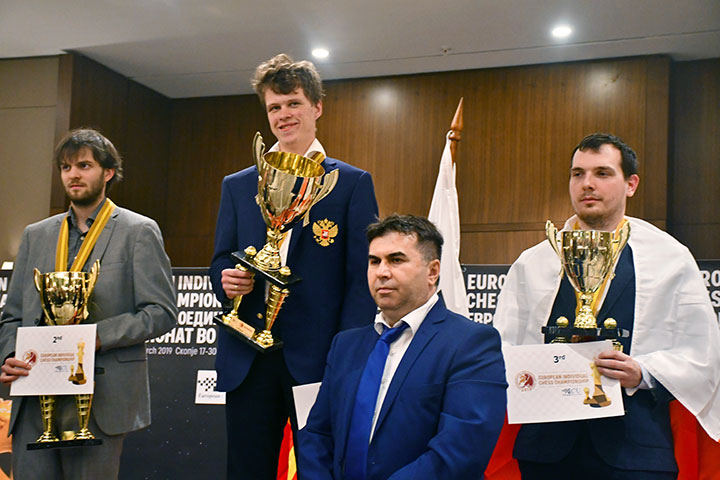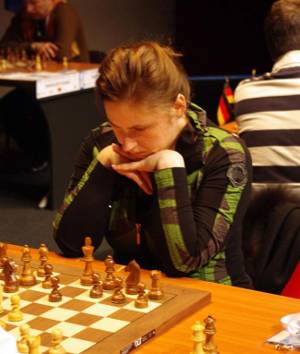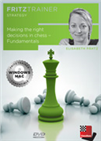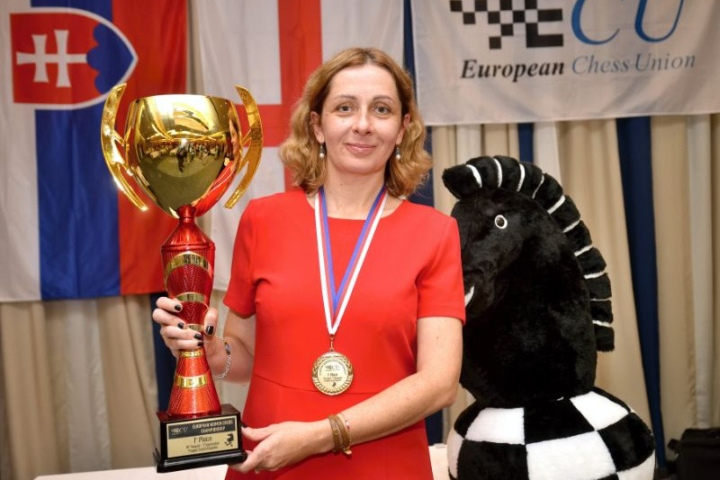Extremely competitive
Established in 2000, the European Championships are among the strongest open tournaments taking place yearly in the chess calendar. Since the pandemic prevented the organization of the 2020 event, this year marks the 23rd editions of both the open and women’s championships. The open is set to start on March 3 in Vrnjacka Banja, Serbia, while the women’s tournament will kick off on March 18 in Petrovac, Montenegro.
 In this first part, the emphasis is on themes and ideas whereas Part 2 and 3 focus on theoretical knowledge!
In this first part, the emphasis is on themes and ideas whereas Part 2 and 3 focus on theoretical knowledge!Following Russia’s invasion of Ukraine, which led to FIDE banning Russian squads from participating in team events, the Chess Federation of Russia announced in January that they had applied for membership in the Asian Chess Federation. The European Chess Union, organizer of the continental championships, informed that Russian players who live in Europe will be permitted to transfer to the ECU without paying fees to Russia and FIDE. The whole handling of the situation by FIDE and the ECU has raised concerns by detractors, the strongest of which is Peter Heine Nielsen.
The 2021 and 2022 editions were also irregular for the Russians. In 2021, the Reykjavík Open was repurposed as the European Championship (only 6 Russian players made their way to Iceland), while in 2022, shortly after the start of the war, only a handful of Russian juniors registered and played under the FIDE flag. However, before that, Russia used to be the country that sent the largest number of players each year (51 in 2018 and 47 in 2019).

The podium in 2019: Vladislav Artemiev (1st), Nils Grandelius (2nd) and Kacper Piorun (3rd)
As per the updated list of registered players for this year’s edition, the highest-rated Russian GMs who signed up for the open are Alexandr Predke, Andrey Esipenko, Alexey Sarana, Evgeniy Najer and Aleksandr Rakhmanov.
The top five seeds are Gabriel Sargissian (Armenia), Haik Martirosyan (Armenia), Radoslaw Wojtaszek (Poland), David Navara (Czechia) and Jules Moussard (France). Two highly respected veterans also included in the lineup: Boris Gelfand and Vasyl Ivanchuk.
Besides fighting for the €20.000 first prize, the players will attempt to finish among the top 23 in the standings, as this event also serves as a qualifier for the FIDE World Cup.
Past champions
 Remarkably, there have not been any repeat champions in the 22 editions of the open tournament. Half the time (in 11 editions), a Russian took first place, albeit the Russian dominance only began in 2009. Before that, players from nine different nations had won the championship, while between 2009 and 2021, ten out of twelve champions hailed from Russia.
Remarkably, there have not been any repeat champions in the 22 editions of the open tournament. Half the time (in 11 editions), a Russian took first place, albeit the Russian dominance only began in 2009. Before that, players from nine different nations had won the championship, while between 2009 and 2021, ten out of twelve champions hailed from Russia.
The historic data from the women’s championship tells a different story, as five players have managed to win the title more than once: Valentina Gunina (Russia), in fact, won the event on three occasions, while Natalia Zhukova (Ukraine), Pia Cramling (Sweden), Tatiana Kosintseva (Russia) and Kateryna Lagno (both times representing Ukraine) have all won the tournament twice.
The one woman player who grabbed a medal in an open championship was — no surprise here — Judit Polgar (Hungary, pictured right), who finished third at the 2011 edition in Aix-les-Bains, France. Vladimir Potkin and Radoslaw Wojtaszek grabbed gold and silver, respectively, in that edition.
Bluebaum and Socko triumph in 2022
Last year, the championships took place in Brežice, Slovenia (open) and Prague, Czechia (women’s). Both events, much like this year, were 11-round Swiss opens, and both saw the winner taking home the gold after scoring 8½ points.
 In a total of 6 chapters, we look at the following aspects: the right decision based on tactical factors, decisions in exchanges and moves, complex and psychological decisions in longer games and in defence.
In a total of 6 chapters, we look at the following aspects: the right decision based on tactical factors, decisions in exchanges and moves, complex and psychological decisions in longer games and in defence.Matthias Bluebaum (Germany) won the open championship thanks to his superior tiebreak score, as Gabriel Sargissian had also collected 8½ points, while Monika Socko (Poland) was the outright winner in the women’s tournament.

Monicka Socko holding the winner’s cup in 2022
Find below two games from the 2022 Open Championship, annotated by the players themselves for ChessBase Magazine. First, Aryan Tari shares his thoughts on the win he got over Azerbaijani rising star Aydin Suleymanli, and then Jaime Santos shows his victory with white over Daniil Yuffa.
Links
.jpeg)


















 Remarkably, there have not been any repeat champions in the 22 editions of the open tournament. Half the time (in 11 editions), a Russian took first place, albeit the Russian dominance
Remarkably, there have not been any repeat champions in the 22 editions of the open tournament. Half the time (in 11 editions), a Russian took first place, albeit the Russian dominance 





